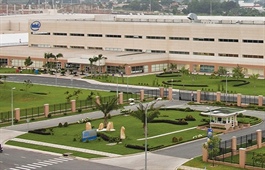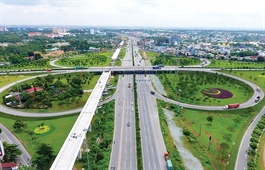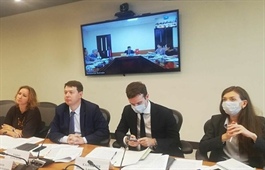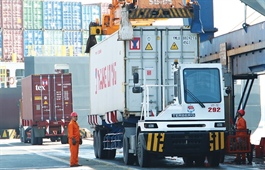The path to economic recovery and further growth
The path to economic recovery and further growth
While Vietnam has experienced an unprecedented boom in recent decades, the current pandemic is now having a clear negative impact on the economic outlook. Foreign trade, investments, and the not negligible remittances from overseas Vietnamese and disruption in consumption are putting pressure on the economy. It is clear to every observer that economic recovery will be a Herculean task. But what can Vietnam do to reposition itself powerfully and finally emerge from the crisis stronger?

Prof. Dr. Andreas Stoffers Friedrich Naumann Foundation for Freedom in Hanoi
|
Although Vietnam’s economic growth slowed down, in the second quarter of 2020, Vietnam was still able to record economic growth of 0.36 per cent on-year while the European Union suffered losses of 14.4 per cent on-year, and the United States 9.5 per cent on-year. This bordered on a miracle, but was due both to the crisis management and the preparatory work of the previous years of liberalisation and stabilisation of qualitative growth.
Global fiscal dangers
In the wake of the pandemic, balance sheets of leading central banks exploded. Since March the Fed’s balance sheet has risen from $4.1 trillion to $6.9 trillion, while that of the European Central Bank (ECB) has risen from €4.6 trillion ($5.44 trillion) to €6.3 trillion ($7.45 trillion). The central banks in the United Kingdom and Japan have experienced similar growth, albeit at lower levels.
The State Bank of Vietnam pumped at least $2.4 billion via purchase and sale of securities in April and May into the market. The growth of money supply increased rapidly from February (0.94 per cent) to June (5.15 per cent). Interestingly, that is much lower than growth levels last year and most likely driven by the fear of inflation.
The ECB and the Fed have increased assets around 5-7 times since 2008. Today’s sums correspond to a share of assets of major Western central banks in GDP (in 2019) of the respective economic areas of 53 per cent (Eurozone) and 30 per cent (the US). These ratios are likely to be much higher in 2020 as the economy shrinks while balance sheets grow.
In the West, central banks mainly increased the money supply to buy government bonds and thereby buffer debt-financed government spending during the economic crisis. They also print money to buy foreign currencies and thereby depress the value of their own currency, trying to create export advantages. As a consequence, inflationary expectations and mistrust in the strength of currencies can arise, which is fuelling the price of gold.
Moreover, government subsidy, nationalisation, and credit programmes can further sustain economic supply structures that may not be sustainable. The effect would be a collective delay in bankruptcy and a cementing of the misallocation of resources. The process of “creative destruction” would thus be prevented and the sustainability of an economy would be endangered. This does not mean that monetary and fiscal policy measures should not be used to alleviate the greatest need. Rather, it should be borne in mind that interventions should only be very limited in time and extremely cautious.
Repositioning for Vietnam
I am convinced that Vietnam will emerge stronger from this crisis if it takes the right path and follows certain recommendations.
Firstly, emergency aid for citizens and businesses in need through no fault of their own is out of the question. However, all fiscal and monetary policy measures should be made with great care. A purely Keynesian distribution of money to increase demand in the form of helicopter money would have a negative impact on the Vietnamese economy in the medium and long run. Smaller enterprises in particular should receive greater support to increase resilience.
Next, the Vietnamese are thinking about a second package at least $3.4 billion, but it is open in which way it should be spent. Restructuring loans, deferred payments, and tax reductions are better ways than just printing money.
Also, the crisis will inevitably lead to the insolvency of some enterprises. If these companies are otherwise well positioned and viable for the future, state support may be appropriate for a limited period of time.
In addition, monetary policy should also not follow the false path of “modern monetary theory”, according to which government debt is available at no cost. There is no free lunch. The previous path of cautious interest rate cuts is going in the right direction, but it should by no means approach a disastrous zero-interest rate policy that destroys the banking system and creates zombie companies that only survive on free debt.
Finally, the path of consistent liberalisation of the economy, as Vietnam has been pursuing since the 1980s, must continue – despite all protectionist siren calls in the world. The newly-implemented EU-Vietnam trade pact is an excellent approach for Vietnam to reposition itself after the crisis and take a pioneering role within ASEAN.



























